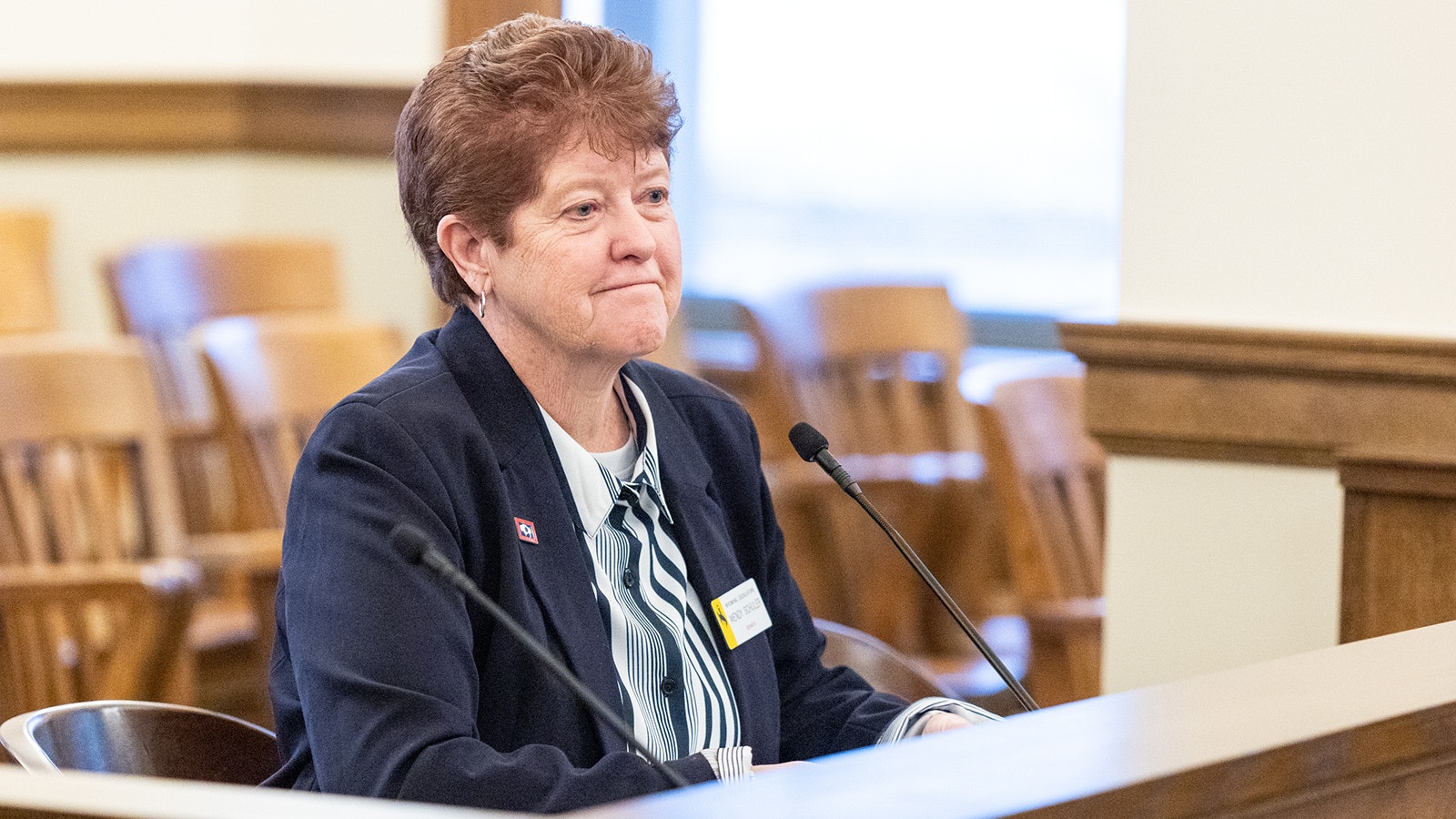A bill banning biological males from competing on girls’ school sports teams in Wyoming cleared a committee vote Monday and advances to the state Senate floor.
Three members of the Senate Education Committee voted in favor of Senate File 133 during a Monday meeting. Two members were absent during the vote, but the Senate Education Committee routinely advances bills on a 3-2 majority.
If it passes the entire Legislature, Senate File 133 would prohibit transgender girls from competing on female sports teams throughout Wyoming public schools.
It would replace existing state policy through the Wyoming High School Activities Association, which allows transgender students denied cross-sex sports participation to appeal to the association for the right to compete.
While opponents of SF 133 said the association’s policy works well for students, the bill’s sponsor, Sen. Wendy Schuler, R-Evanston, said it’s causing girls to miss out on athletic opportunities and complicates the school sports world for students and personnel.
“Regardless of whether a male has completely transitioned or they’re using hormones to begin a transition or they just identify as female, they are physically superior to females,” said Schuler while presenting her bill to the committee.
She listed the larger size of males, including heavier muscular structure, different bone structure and larger hearts and lungs.
The First Of Many Knee Operations
Schuler referred to the federal Title IX statute, which in 1973 gave girls and women the right to compete in female-only sports.
Schuler was asked to play on the boys basketball team in high school – before Title IX was written and before her school offered sports for girls.
“I tried to rebound against a guy that was probably 6-(foot)-1 or 6-2, that could dunk the basketball,” Schuler recalled. “And that was the first of my many knee operations.”
Schuler also played basketball in college against women who were over 6 feet tall, she said, but never again encountered such an ability differential in the game as when she played boys basketball.
Existing Policy ‘Struck A Balance’
Pro-LGBTQ lobbyist group Wyoming Equality opposes SF 133, as does the Wyoming Education Association and the Wyoming Youth Service Association.
Sara Burlingame, Wyoming Equality executive director, told the committee that Wyoming’s existing athletics policy is the gold standard nationwide and allows schools to take transgender athletes’ appeals on a case-by-case basis.
“There are extremists on both sides,” said Burlingame. “My side of the aisle also has extremists (who) would prefer a policy that says, ‘No matter what, irrespective of any advantage you might have, you have the same right as anyone else to participate.’”
Burlingame said an all-out ban also would be extremist, but coming from the other side.
“Our policy has struck a balance,” she said. “It allows for local control and has been essential to the success of Wyoming students.”
Tate Mullen, public policy director for the Wyoming Education Association, echoed Burlingame’s comments and said the agency disapproves of the bill because it would remove local control.
Trans Athletes In Wyoming
Schuler in her own testimony said that she’s heard from more than a dozen families since last spring about daughters who were denied athletic opportunities “because of a trans athlete or two.”
“We had a few, less than a handful to begin with, and now we have more than a handful,” she added.
Schuler also said the bill should take school districts out of the crosshairs of outraged parties on both sides of the issue by creating uniformity.
Janine Bae Tesky, a former Teton County School District board member, voiced approval of the bill because of that uniformity.
Megan Degenfelder, Wyoming Superintendent of Public Instruction, sent a staffer to the meeting to voice her approval of the bill as well.
But If We Get Sued
The bill contains a provision allowing Wyoming’s governor to appoint a commission that would decide transgender-athlete cases one at a time – if SF 133 were blocked or overturned by a court.
Courts are split on the issue of transgender athletes and facilities access.
The 11th Circuit of the U.S. Court of Appeals ruled early this month that a Florida school district that denied a transgender boy the ability to use the boys’ bathroom did not violate either the U.S. Constitution’s Equal Protection clause or Title IX.
The federal government under President Joe Biden is arguing in multiple court cases that Title IX forbids public entities from separating transgender students from peers of the sex with which they identify.
The 11th Circuit’s ruling is in contrast to the Fourth Circuit’s ruling G.G. vs. Gloucester County, in which the court found that denying gender-identity consistent bathroom access is unconstitutional.
The U.S. Supreme Court, meanwhile, has ruled that a similarly-worded Title VII in federal statute forbids employees from firing people due to transgender status. It’s on this basis that the federal government has made its transgender-inclusive view of Title IX.





